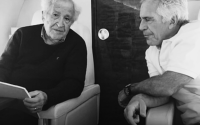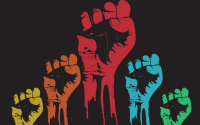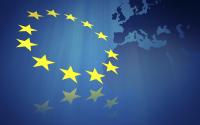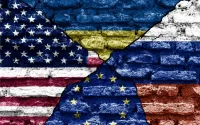Common Dreams / Published on Thursday, July 15, 2004 by the OneWorld.net
Bolstered by a critical new report by the investigative arm of the U.S. Congress, AIDS and public-health activists attending this week's 15th International AIDS Conference in Bangkok are redoubling their fire against efforts by the Bush administration to protect the interests of major U.S. pharmaceutical companies.
The focus of their concern is Washington's continued refusal to permit U.S. aid money to be used to buy life-preserving generic anti-retroviral (ARV) drugs manufactured in developing countries, such as India, Thailand, and Brazil that are much cheaper than brand-name drugs produced by "Big Pharma," as the major western drug companies are known.
They also oppose the Bush administration's demand in recent negotiations for new trade agreements with poor countries, including Thailand and the countries of Central America, which they agree not to produce or import generic versions of new drugs developed by U.S. drug manufacturers for at least five years from the date that they first come to market.
The combined result, according to the activists, risks putting out of reach generic substitutes that could save the lives of millions of needy poor people who cannot afford the brand-name drugs. "Blocking the purchase of cheap drugs for those in need and forcing trade agreements that hinder poor countries' ability to respond to the AIDS crisis are key obstacles to an effective global response to the AIDS crisis," said Salih Booker, director of the Washington-based Africa Action, a grassroots advocacy group.
This week's conference, which has drawn nearly 20,000 participants from around the world, comes on the heels of a new UNAIDS report that showed that three million people died from AIDS-related causes last year -- or about 8,000 people each day -- about two thirds of them in Africa. At the same time, however, another five million more people worldwide were infected with HIV, the virus that causes AIDS.
The latest statistics also showed that while the epidemic appears to have stabilized somewhat in Africa, it is spreading quickly elsewhere, particularly in Asia and Eastern Europe.
When Bush announced his five-year, US$15 billion 'President's Emergency Plan for AIDS Relief (PEPFAR) in January, 2003, the initiative was widely seen as a major step toward leading the world into taking serious action against what has become the most deadly epidemic in recorded history.
But Bush's defense of the pharmaceutical industry's interests with respect both to what ARVs can be purchased with PEPFAR funds and to the anti-generics provisions in new trade agreements, have contributed to a growing sense of disillusionment about the program, in spite of the fact that Washington has become the largest single donor to global anti-AIDS efforts.
Washington's generosity was stressed by Bush's global AIDS "czar," former Eli Lilly CEO Randall Tobias, in his speech to the Bangkok meeting Wednesday. "This year, America is spending nearly twice as much to fight global AIDS as the rest of the world's donor governments combined," he said, ignoring dozens of hecklers chanting "Bush lies, millions die," as he spoke.
Insisting that HIV/AIDS is the "real enemy," Tobias, whose professional ties to the pharmaceutical industry have come under heavy fire from activists, declared that it was "morally imperative that we direct our energies at these enemies, not at one another,"
UNAIDS estimates that some six million people need ARV treatment in low- and middle-income countries, but only about 400,000 of them had access to life-sustaining ARV drugs at the end of last year.
The new report by Congress' General Accounting Office (GAO), however, suggests that PEPFAR is falling far short of its five-year goal of providing two million people with ARV treatment in 15 countries -- all but one of them in Africa and the Caribbean -- in part due to its ban on using the aid money to buy generic versions of brand-name drugs. By some estimates, only 20,000 people are receiving ARVs from PEPFAR to date, almost all of them in one country, Rwanda.
The problem is that brand-name AIDS drugs are as much as five times more expensive than generic version. Activists argue that, if Bush would permit PEPFAR funds to be used to buy generics, the money allocated for treatment could provide much wider coverage.
The administration has defended its position by insisting that it should only use drugs that have been tested and approved by the Food and Drug Administration (FDA). As Tobias said Wednesday, "It is a moral imperative that families in programs funded by the United States in the developing world have the same assurances as American families that the drugs they use are safe and effective," he said.
But critics point out that generic anti-AIDS drugs must pass tests imposed by the World Health Organization (WHO) that are just as rigorous as the FDA's.
The GAO report, which was based on interviews of 28 field staff from two U.S. government agencies responsible for on-the-ground implementation of PEPFAR, did not address the effectiveness and safety of generics versus brand-name ARVs.
What it did find was almost unanimous agreement that the administration's policies regarding the procurement of generic drugs constituted both a major source of confusion to field staff and a major obstacle for getting treatment to those who need it.
"Field staff lacked clear guidelines for producing ARV drugs, which made it difficult to plan treatment programs, possibly inhibiting the agencies' ability to support country HIV/AIDS treatment programs," it said. The watchdog noted that it also made the ban on generics made it more difficult for U.S. agencies to coordinate their work with other donors and agencies that buy generics.
"Bush is selling compassion to American voters this election year, but the real agenda of the White House has been to create a slush-fund for U.S. drug companies," said Paul Davis, domestic policy director for HealthGAP. "The U.S. government's own watchdog group says the Bush program is not working."
In light of these complaints, the administration announced in May that it would establish a new, fast-track process whereby the FDA, which normally takes more than a year to approve drugs, could approve generic anti-AIDS drugs within as little as six weeks. Once approved for effectiveness and safety, such drugs could be eligible for use in PEPFAR, according to Tobias.
None of the generic manufacturers, however, has yet submitted an application, while activists insist that WHO approval should be sufficient.
Tobias himself took note this week of the opposition of many beneficiaries to using PEPFAR money to buy brand-name ARVs. In a statement released Tuesday in Bangkok, he said Washington would not object under those circumstances to the funding being used for other purposes.
"In the event that a country elects to use non-U.S. funding to purchase copy drugs that have not been approved for quality and safety by the U.S.," it said, (PEPFAR) will support non-pharmaceutical aspects of the country's care, treatment and prevention..."






